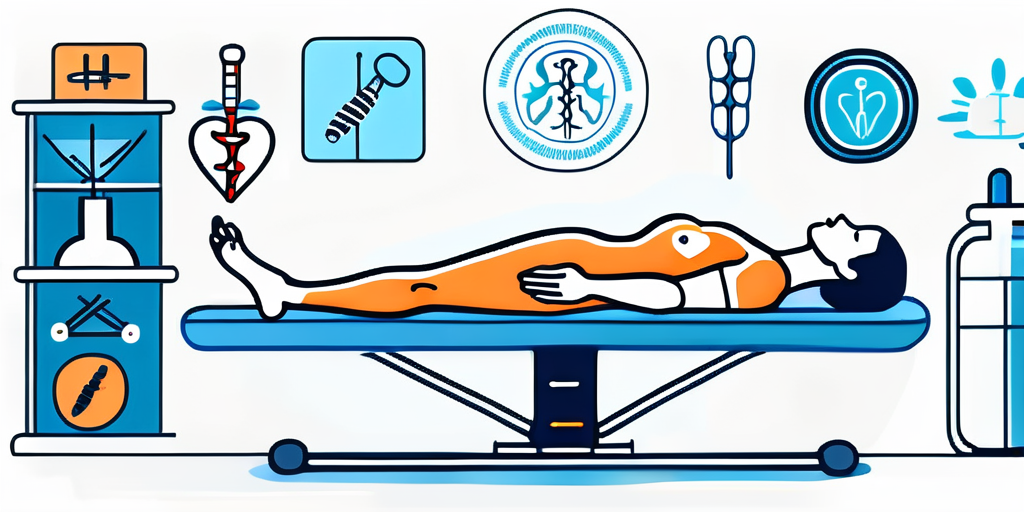If you are experiencing the sharp, shooting pain associated with a pinched nerve, you know how debilitating it can be. Everyday tasks become a struggle, and the constant discomfort can affect every aspect of your life. But fear not; relief may be closer than you think. Consider seeking help from a chiropractor for your pinched nerve.
Chiropractic care offers a holistic and drug-free approach to alleviating pain and promoting overall wellness. In this article, we will explore the causes and symptoms of pinched nerves, how chiropractic care can provide relief, and the benefits of chiropractic care for long-term nerve health.
Understanding Pinched Nerves: Causes and Symptoms
Before discussing the benefits of chiropractic care, it’s essential to understand what a pinched nerve is and its common causes and associated symptoms. A pinched nerve occurs when surrounding tissues, such as bones, muscles, tendons, or cartilage, apply excessive pressure to it. This pressure can disrupt the nerve’s regular function and lead to pain, tingling, numbness, or weakness in the affected area.
Pinched nerves can arise from various factors, including poor posture, repetitive motions, obesity, arthritis, herniated discs, or spinal misalignments. The most commonly affected areas are the neck, back, and wrists. Identifying the underlying cause of your pinched nerve is crucial in determining the most effective treatment approach.
It’s important to note that pinched nerves can also occur in other parts of the body, such as the elbows, hips, and knees. For example, cubital tunnel syndrome is a condition where the ulnar nerve in the elbow is compressed, leading to symptoms like numbness and tingling in the ring and little fingers. Meralgia paresthetica involves compression of the lateral femoral cutaneous nerve, causing burning pain and numbness in the outer thigh.
Furthermore, certain lifestyle factors, such as wearing tight clothing or carrying a heavy backpack, can contribute to developing pinched nerves. Additionally, repetitive activities, like typing on a keyboard or playing sports, can increase the risk of nerve compression. Understanding these potential causes and symptoms can help individuals take preventive measures to avoid the discomfort and limitations associated with pinched nerves.
How Chiropractic Care Can Help with Pinched Nerves
If you’re seeking a non-invasive and drug-free approach to relieving pinched nerve pain, chiropractic care may be just what you need. Chiropractors are trained to assess and treat musculoskeletal conditions, including pinched nerves.
During your initial consultation, a chiropractor will thoroughly examine the root cause of your pinched nerve. This assessment typically involves a comprehensive medical history review, physical examination, and possibly diagnostic imaging, such as X-rays or MRIs.
Once the chiropractor has determined the underlying cause of your pinched nerve, they will create a personalized treatment plan tailored to your specific needs. Chiropractic treatments often involve spinal adjustments, manual manipulations, soft tissue therapies, and therapeutic exercises.
Chiropractic care utilizes several key techniques that can help alleviate pinched nerve pain and restore proper nerve function:
- Spinal Adjustments: Chiropractors use controlled and precise force to gently realign the spinal vertebrae, relieving pressure on the affected nerve. This technique aims to restore proper spinal alignment and improve nerve health.
- Soft Tissue Therapies: Chiropractors can release tension, reduce inflammation, and promote healing by applying targeted pressure and stretching techniques to the affected muscles and tissues.
- Therapeutic Exercises: Chiropractors may prescribe specific exercises to strengthen the muscles surrounding the pinched nerve. These exercises help stabilize the affected area and prevent further nerve compression.
It’s important to note that chiropractic care is a holistic approach that focuses on addressing the root cause of the issue rather than simply masking the symptoms. By targeting the underlying cause of your pinched nerve, chiropractic care aims to provide long-lasting relief and improve overall well-being.
The Benefits of Chiropractic Care for Pinched Nerves
Chiropractic care offers numerous benefits for individuals suffering from pinched nerves. One key advantage is its noninvasive nature. Unlike invasive procedures or medications that may have potential side effects, chiropractic care provides a natural and gentle approach to pain relief.
Furthermore, chiropractic care aims to treat the whole person, not just the symptoms. By addressing the underlying cause of the pinched nerve, chiropractors can help restore balance and promote overall wellness. This comprehensive approach often leads to improved mobility, reduced pain, and enhanced quality of life.
In addition to the physical benefits, chiropractic care emphasizes patient education and empowerment. Chiropractors work closely with their patients to educate them about proper posture, ergonomics, and lifestyle modifications that can help prevent future pinched nerves. Chiropractic care promotes long-term health and well-being by empowering patients with knowledge and tools for self-care.
Moreover, chiropractic care is a safe and effective option for individuals of all ages. Whether a young athlete experiencing a pinched nerve from repetitive motion or an older adult with age-related degeneration, chiropractic care can be tailored to meet your unique needs and goals.
Chiropractic care offers a comprehensive and personalized approach to treating pinched nerves. By addressing the root cause and prioritizing patient education, chiropractors aim to alleviate long-term discomfort and improve the well-being of individuals with pinched nerves.
The Role of Spinal Adjustments in Nerve Health
Spinal adjustments, or spinal manipulations, are central to chiropractic care for pinched nerves. The spine plays a vital role in properly functioning the nervous system, which transmits signals between the brain and the rest of the body.
When a nerve is pinched, it is often due to misalignments or subluxations in the spine. These misalignments can compress the nerves and disrupt their normal function. Spinal adjustments performed by chiropractors aim to correct these misalignments, relieve nerve pressure, and restore proper nerve function.
Chiropractic adjustments can relieve pinched nerves and other nervous system-related conditions, such as sciatica, neuropathy, and radiculopathy, by restoring proper spinal alignment.
Beyond Immediate Relief: Long-Term Nerve Health Benefits
Chiropractic care is not just about providing immediate relief for pinched nerves; it also promotes long-term nerve health. Regular chiropractic adjustments can help maintain proper spinal alignment, reduce the risk of future nerve impingements, and improve overall nerve function.
In addition to spinal adjustments, chiropractors often offer lifestyle recommendations and ergonomic advice to prevent the recurrence of pinched nerves. These recommendations may include maintaining good posture, practicing proper body mechanics during activities, exercising regularly, and managing stress.
However, the benefits of chiropractic care go beyond just spinal adjustments and lifestyle recommendations. Chiropractors also emphasize the importance of nutrition in supporting nerve health. A well-balanced diet that includes essential nutrients, vitamins, and minerals can contribute to the overall health of your nerves.
Furthermore, chiropractic care recognizes the mind-body connection and its impact on nerve health. Stress, anxiety, and emotional tension can all affect the nervous system. Chiropractors may incorporate stress management techniques, such as relaxation exercises or meditation, to help patients achieve optimal nerve health.
Chiropractic care aims to optimize the body’s natural healing abilities and enhance overall well-being by taking a holistic approach to nerve health. It’s about managing symptoms, supporting long-term nerve health, and empowering individuals to participate in their well-being actively.
Integrating Chiropractic Care with Other Treatments
Chiropractic care can help relieve pinched nerves, but it’s important to remember that each person and condition is unique. In some cases, integrating chiropractic care with other treatments may yield the best results.

Your chiropractor can work collaboratively with other healthcare professionals, such as physical therapists, massage therapists, or pain management specialists, to create a comprehensive treatment plan that addresses all aspects of your condition. This integrative approach can maximize the effectiveness of your treatment and promote optimal healing.
Before starting any new treatment regimen, it’s essential to consult with your healthcare provider to ensure that chiropractic care is a safe and appropriate option for you.
Collaboration among healthcare providers is becoming increasingly common in treating various conditions, including pinched nerves. By combining the expertise of different professionals, patients can benefit from a more holistic and well-rounded approach to their healthcare. For example, a physical therapist may focus on strengthening exercises to support the spine, while a chiropractor can provide adjustments to alleviate nerve compression, leading to improved overall outcomes.
Furthermore, integrating massage therapy with chiropractic care can help relax tight muscles, improve circulation, and enhance the effects of spinal adjustments. This treatment combination can address immediate pinched nerve symptoms, promote relaxation, and reduce stress, which are crucial for the body’s healing process.



